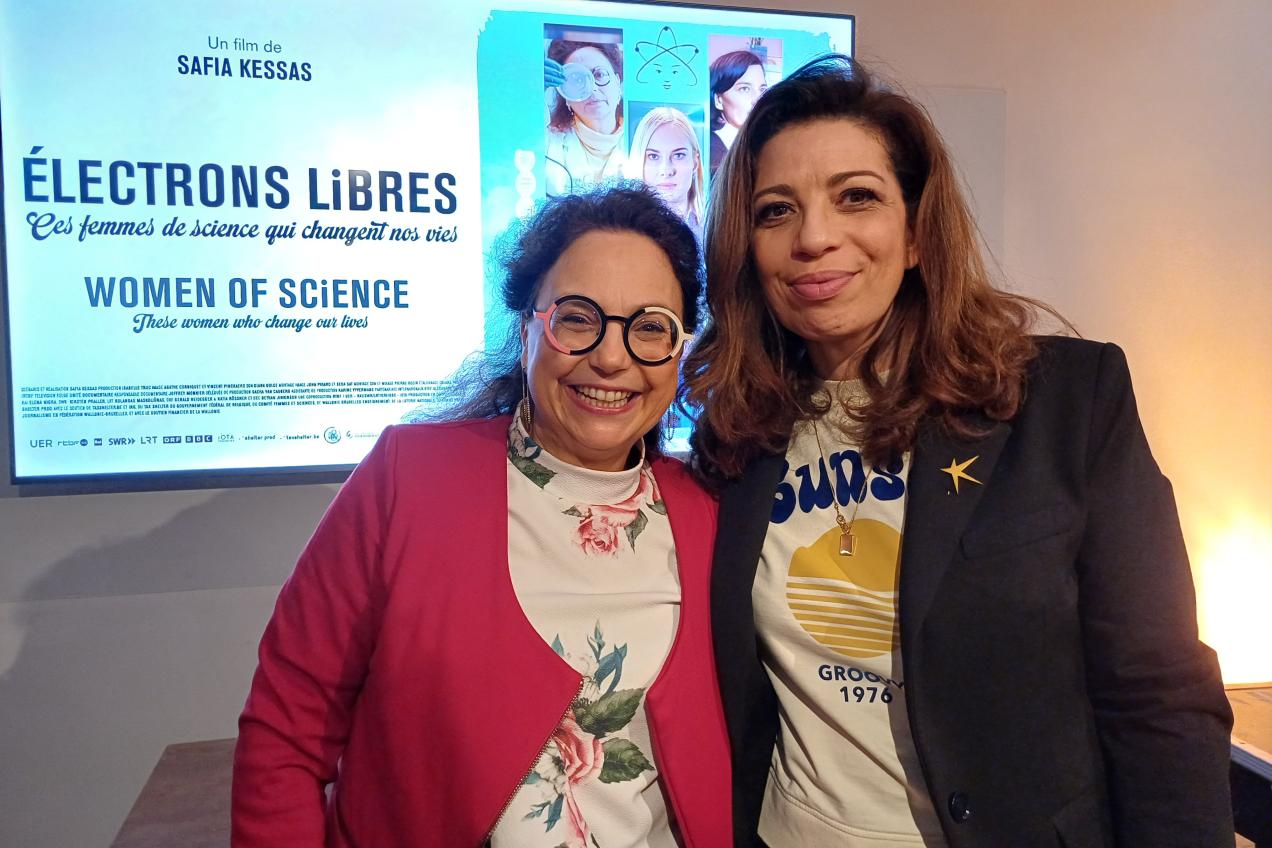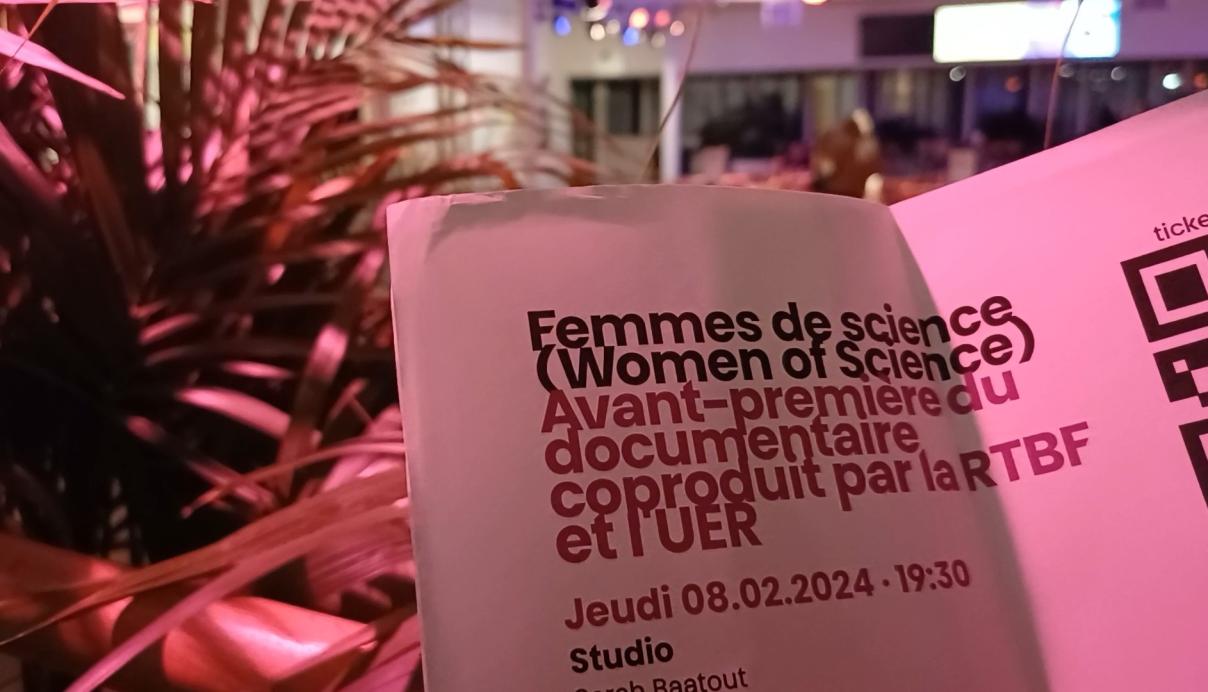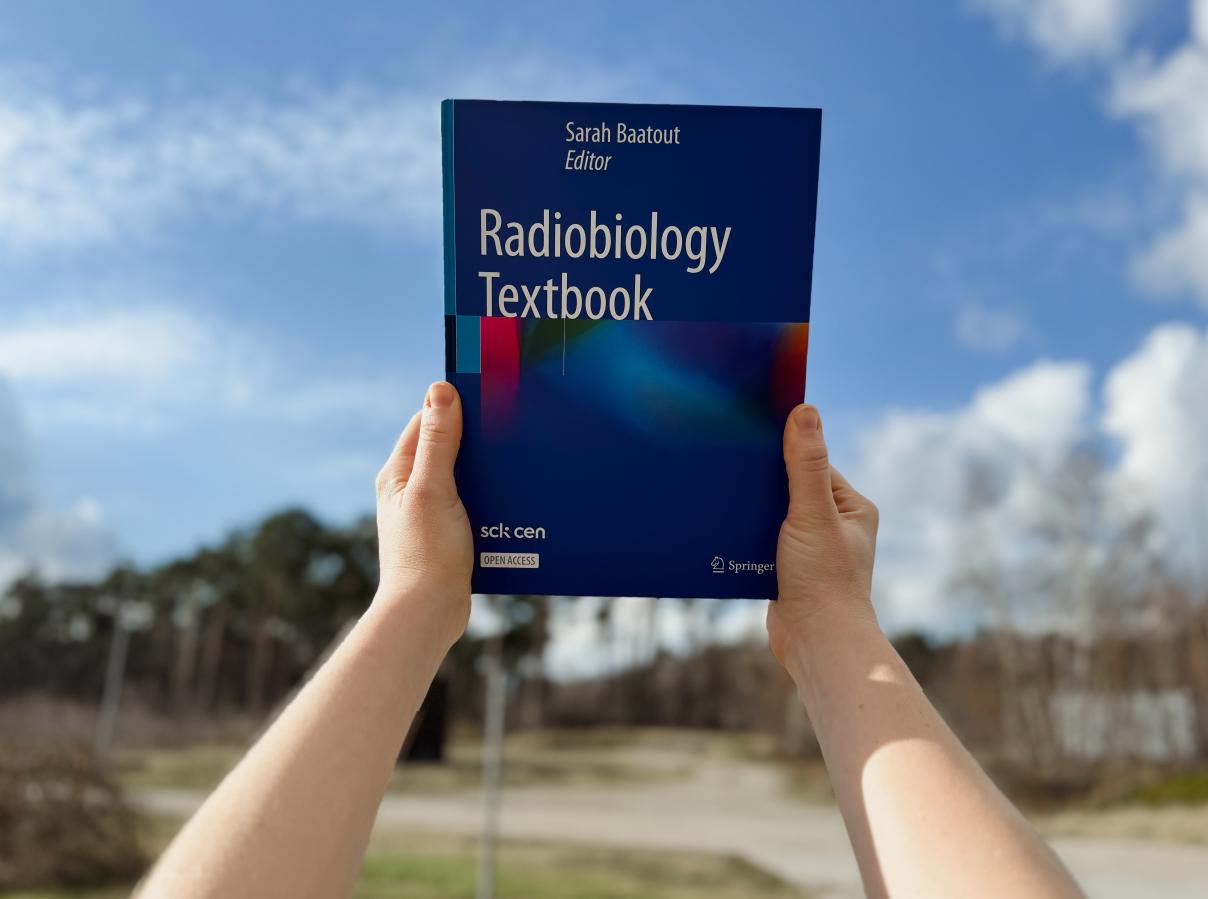Sarah Baatout shines as STEM role model in brand-new documentary
“Becoming a newsreader or opening a zoo in Africa, those were my dreams as a 22-year-old woman.” With those lively words and a radiant smile, Sarah Baatout enters the screen in 'Électrons Libres'. That vibrant documentary by Safia Kessas takes a look at the lives of Sarah and five other inspiring European women in science. At the preview on 8 February, they managed to mesmerise audiences with their stories. Tonight, they promise to do the same, this time right in your living room. Tune in to La Trois at 9.20pm and be inspired.
On 11 February, we celebrate the International Day of Women and Girls in Science. We are proud of our amazing female colleagues, each one, in their role, contributing to the advancement of humanity. You are an inspiration. #WomenInSTEM #IDWGS2024 🌟👩🔬 #WomenInSTEM

‘Électron Libres’ tells the story of six women in science: Sarah Baatout, Monica Gori, Tiziana Bräuer, Ieva Plikusiené, Doris Schlaffer and Anne-Marie Imafidon. The documentary zooms in on the successes they were able to celebrate and the difficulties experienced by women in STEM fields. With these portraits, producer Safia Kessas challenges the stereotype of the male scientist: “These women are not lab rats who have sacrificed everything for science. They have a life outside the lab and combine it with their scientific research. And their contribution is invaluable. So they are simultaneously extraordinary and ordinary in their private lives. I hope this documentary inspires and motivates young women to choose STEM.”

“And this is important. The presence of women in a scientific team enriches its perspectives and insights. This increases the diversity and creativity of research. Together, we can actually find solutions which society needs. I am fascinated by how Safia Kessas and her team managed to capture that on film. I want to thank her for this amazing experience and to congratulate her for the excellent results,” adds Sarah Baatout.
Six women, six role models
Who are these women and what is their impact on STEM (Science, Technology, Engineering & Mathematics)?
-
Sarah Baatout is deputy director of the Nuclear Medical Applications institute at the nuclear research centre SCK CEN. She has been contributing to research into personalised medicine, both for cancer patients and astronauts, for more than 20 years.
-
As a researcher at the Italian Institute of Technology in Genoa, Monika Gori plays a unique role in the development of technologies for children with disabilities. Her pioneering work contributes to a more accessible and inclusive world.
-
She researches the effect of condensation trails on climate at the German Aerospace Centre (DLR). For her, technology is the way to solve today's climate problem.
-
A chemist who designs and develops optical biosensors. She chairs the Young Academy of the Academy of Sciences of Lithuania and has been awarded the international L'Oréal-UNESCO prize for women in science.
-
Doris Schaffer is site manager in an IT company in Vienna, Austria. She founded the network “The New IT Girls”. It aims to support and encourage women in various IT professions.
-
Anne-Marie is a leading computer scientist and is committed to increasing the representation of women, girls and non-binary individuals in the technology sector. Her energetic commitment promotes inclusion and diversity so that everyone can participate in the technological revolution.
Curious to see the documentary? Tune in to La Trois at 9.20pm and be inspired.

Sarah Baatout's global impact
Sarah Baatout proved just last year that she can get the scientific world moving. She then released - via Springer - the open access 'Radiobiology Textbook'. In order to do this, she invited leading writers and thinkers in the field of radiobiology and eventually gathered no fewer than 126 experts and 20 external reviewers from all over the world. Among them were radiation biologists, physicists and clinicians, who provided their knowledge... free of charge. The book is the first comprehensive book on radiobiology, filling an important gap in the academic landscape. It offers a unique perspective by covering all aspects of this field of research. The book has since been downloaded as many as 66,000 times and was translated into several languages, including Greek and Chinese.
Interested in learning more about radiobiology?